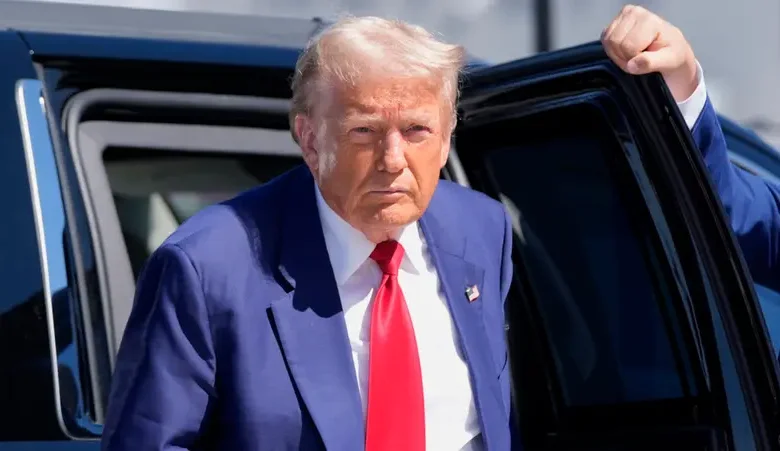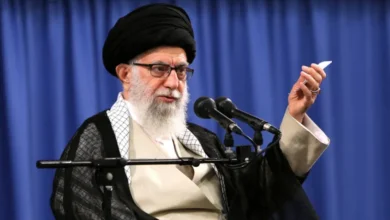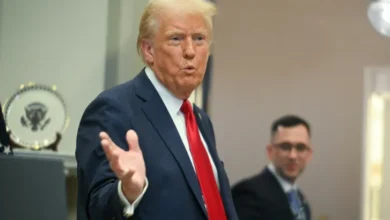Trump must be sentenced in hush money criminal case on Jan. 10, judge rules

President-elect Donald Trump will be sentenced on Jan. 10 in the criminal case in which he was convicted on charges involving hush money paid to a porn star, but is unlikely to face jail time, a judge said on Friday.
Justice Juan Merchan’s ruling means Trump will be required to appear at a court hearing just 10 days before his Jan. 20 inauguration – an unprecedented scenario in US history. Before Trump, no US president – former or sitting – had been charged with or convicted of a crime.
The judge said Trump, 78, may appear at his sentencing either in person or virtually.
He wrote that he was not inclined to sentence Trump to jail, and that a sentence of “unconditional discharge” – meaning no custody, monetary fine, or probation – would be “the most viable solution.”
In a statement, Trump spokesperson Steven Cheung said there should be no sentencing in the case.
“This lawless case should have never been brought, and the Constitution demands that it be immediately dismissed,” Cheung said.
Merchan announced his plan for the sentencing in denying Trump’s motion to dismiss the case due to his presidential election victory. Trump’s defense lawyers had argued that having the case hang over him during his presidency would impede his ability to govern.
Merchan rejected that argument, writing that setting aside the jury’s verdict would “undermine the Rule of Law in immeasurable ways.”
“Defendant’s status as President-elect does not require the drastic and ‘rare’ application of (the court’s) authority to grant the (dismissal) motion,” Merchan wrote in the decision.
Merchan also rejected Trump’s argument in a Dec. 3 court filing that dismissal was warranted because his “civic and financial contributions to this city and the Nation are too numerous to count.”
While acknowledging Trump’s service as president, the judge said Trump’s public statements excoriating the justice system were also a factor for him in determining how Trump’s character would factor into the decision.
Merchan criticized what he called Trump’s “unrelenting and unsubstantiated attacks” against the integrity of the criminal proceeding, and noted that he had found him guilty of 10 counts of contempt during the trial for repeatedly violating an order restricting out-of-court statements about witnesses and others.
“Defendant has gone to great lengths to broadcast on social media and other forums his lack of respect for judges, juries, grand juries and the justice system as a whole,” Merchan wrote.
“Defendant’s character and history vis-a-vis the Rule of Law and the Third Branch of government must be analyzed,” the judge said, referring to the judiciary. “In that vein, it does not weigh in his favor.”
34 counts
The case stemmed from a $130,000 payment that Trump’s former lawyer Michael Cohen made to adult film actor Stormy Daniels. The payment was for her silence before the 2016 election about a sexual encounter she has said she had a decade earlier with Trump, who denies it.
A Manhattan jury in May found Trump guilty of 34 counts of falsifying business records to cover up the payment. It was the first time a US president had been convicted of or charged with a criminal offense.
Trump pleaded not guilty and called the case an attempt by Manhattan District Attorney Bragg, the Democratic prosecutor who brought the charges, to harm his 2024 campaign.
Trump’s sentencing was initially scheduled for July 11, 2024, but has been pushed back several times. On Thursday, Merchan said Trump’s request in August that the sentencing be pushed back until after the election implied that he consented to being sentenced during the transition period.
“Any claim Defendant may have that circumstances have changed as a result of Defendant’s victory in the Presidential election, while convenient, is disingenuous,” Merchan wrote.
Bragg did not oppose delaying the sentencing until after the election. Merchan in September pushed it back to Nov. 26.
After Trump defeated Democratic Vice President Kamala Harris in the Nov. 5 election, the judge delayed the sentencing indefinitely to figure out next steps.
Bragg’s office had argued there were measures short of the “extreme remedy” of overturning the jury’s verdict that could assuage Trump’s concerns about being distracted by a criminal case while serving as president, such as delaying the sentence until after Trump leaves the White House in 2029.
Merchan wrote on Thursday he found that alternative “less desirable” than sentencing Trump before the inauguration.
Presidential immunity
Trump on Dec. 16 lost a separate bid to toss the hush money conviction in light of the US Supreme Court’s July 1 decision that presidents cannot be criminally prosecuted over their official actions, and that evidence of their official actions cannot be presented in criminal cases over personal conduct.
In denying Trump’s motion to dismiss, Merchan said the prosecution over “decidedly personal acts of falsifying business records poses no danger of intrusion on the authority and function of the executive branch.”
Falsifying business records is punishable by up to four years in prison, but incarceration is not required. Before his election victory, legal experts said it was unlikely Trump would be locked up due to his lack of a criminal history and advanced age.
Trump was charged in three other state and federal criminal cases in 2023: one involving classified documents he kept after leaving office and two others involving his efforts to overturn his 2020 election loss.
He pleaded not guilty in all three cases. The Justice Department moved to dismiss the two federal cases after Trump’s election victory.
Trump’s state criminal case in Georgia over charges stemming from his effort to overturn his 2020 election loss in that state is in limbo.










